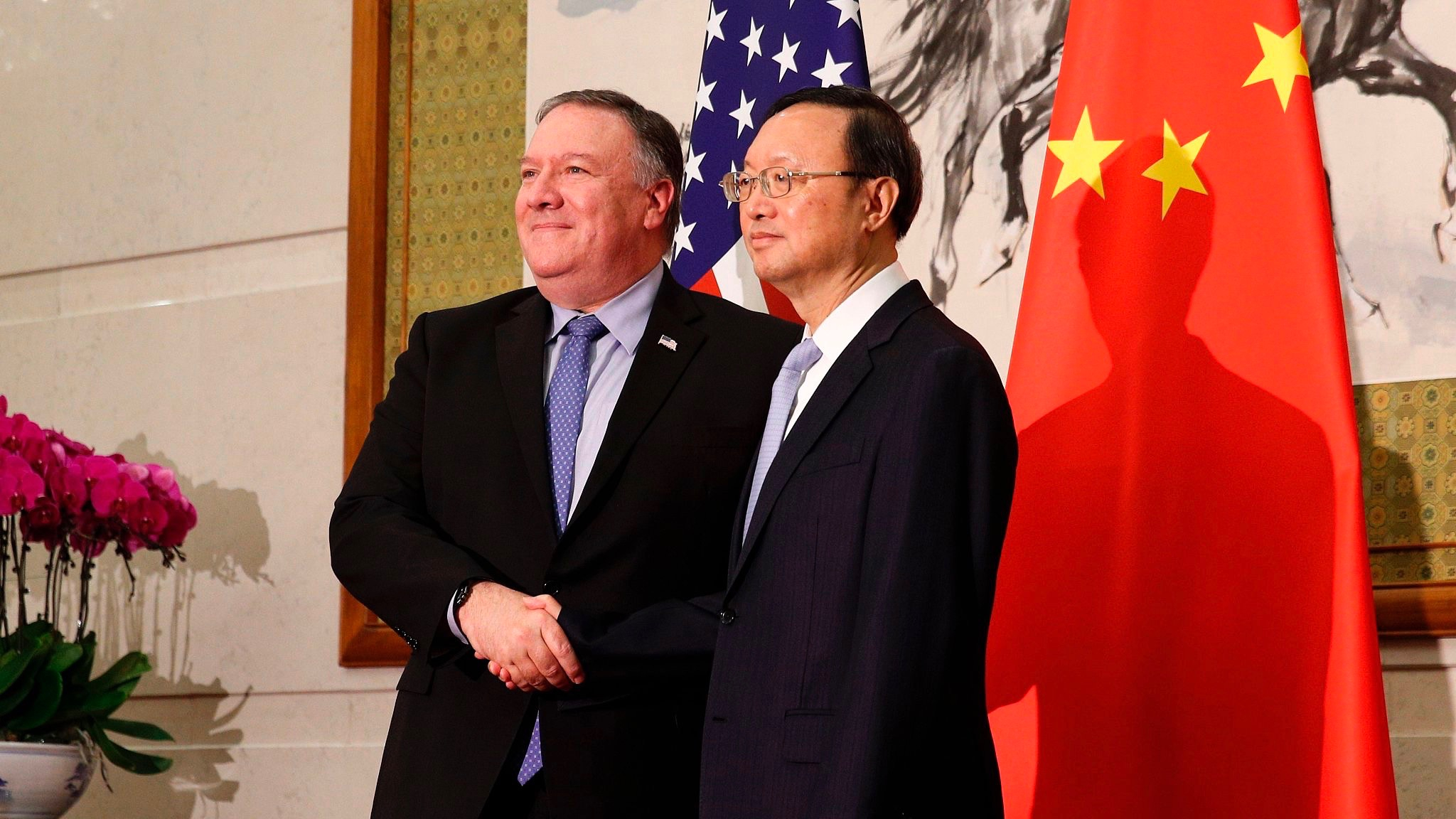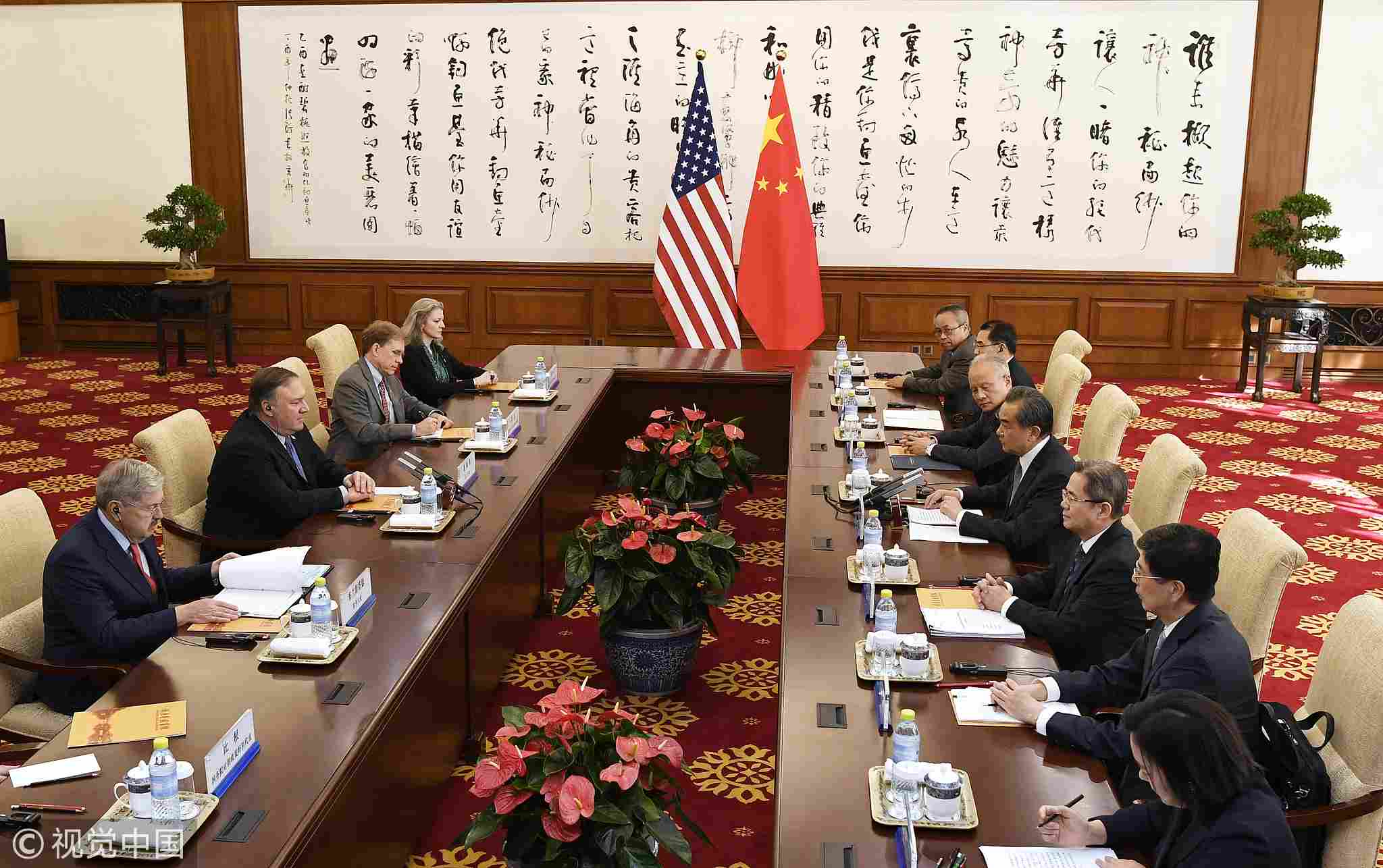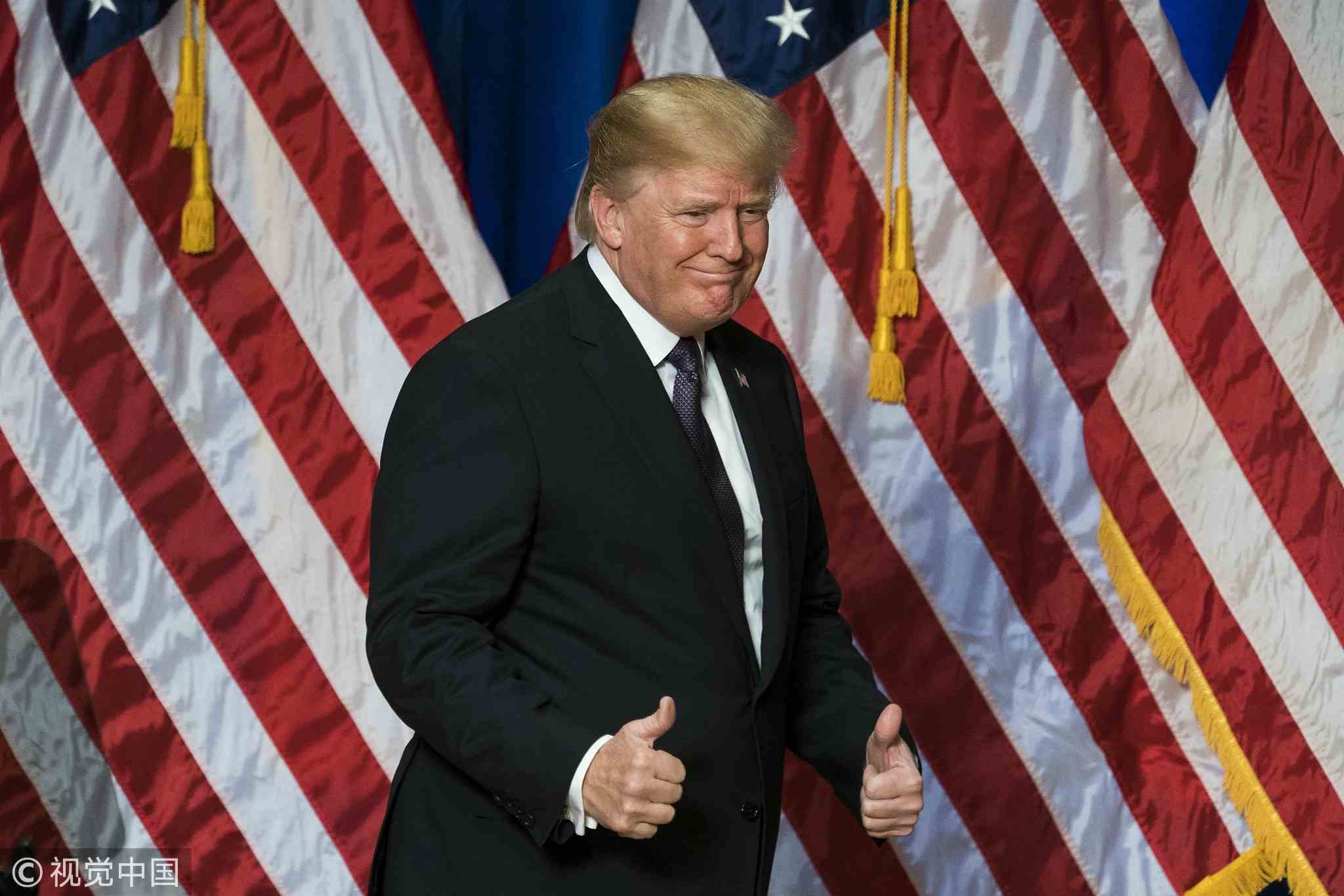
Opinions
08:35, 09-Oct-2018
Opinion: Making China a scapegoat would not make America great again
Updated
08:21, 12-Oct-2018
By Sun Chenghao

Editor's note: Sun Chenghao is an assistant research professor at the Institute of American Studies of China Institutes of Contemporary International Relations. The article reflects the author's views, and not necessarily those of CGTN.
US Secretary of State Mike Pompeo's meeting with Wang Yi, Chinese State Councilor and Foreign Minister, and Yang Jiechi, member of the Political Bureau of the Communist Party of China (CPC) Central Committee, in Beijing on Monday came amid tense relations between the two major powers.
Mutual trust has deteriorated these past few months as the US hurls groundless accusations against China concerning trade, intellectual property and human rights. Based on the incendiary rhetoric coming from top US officials, it doesn't seem like things will improve in the near term.
This bilateral relationship has entered a period of turbulence after the White House and the Department of Defense released the National Security Strategy (NSS) and National Defense Strategy (NDS), respectively, labeling China as a "revisionist power" and "strategic competitor," thus basically setting the administration's tune for its policies toward China.
Although the NSS report stated – and US Vice President Mike Pence also stressed in his speech at the Hudson Institute recently – that competition does not necessarily lead to confrontation, the anxiety and eagerness from the US to compete with China would engender more misunderstandings and greater mistrust between the two powers.

Chinese State Councilor and Foreign Minister Wang Yi meets with US Secretary of State Mike Pompeo at Diaoyutai State Guesthouse in Beijing, China, October 8, 2018. /VCG Photo
Chinese State Councilor and Foreign Minister Wang Yi meets with US Secretary of State Mike Pompeo at Diaoyutai State Guesthouse in Beijing, China, October 8, 2018. /VCG Photo
The US has several misconceptions regarding competition.
Number one: Its competition with China will be limited to economics. Number two: The US is not merely targeting China, but is also competing with other countries, including its allies. Number three: By competing with China, President Trump is correcting his predecessor's erroneous policies.
However, if we look at US trade policies towards China, it has already gone past the stage of solving trade deficits or economic problems.
The US has made groundless accusations against China's intellectual property protection, market openness and technology transfers, requiring major concessions in those areas as the precondition for China-US trade talks.
In other words, the trade conflicts triggered by the US are not for turning trade numbers around, but for changing China's pace of reform and opening up, or altering China's mode of economic development.
In short, the US is using its economic strength to interfere with China's domestic politics.
Moreover, the US is not truly competing with its allies but coercing them to economically isolate China, if necessary in the future.
The United States-Mexico-Canada Agreement (USMCA) – the new NAFTA signed by the US, Canada and Mexico – is a good example. It stipulates that if one partner enters into a free trade agreement with a "non-market economy," the others are entitled to withdraw from the deal on six-month's notice.
The language is widely seen as referring to China since the US has long refused to recognize it as a market economy.
It is also expected that the US will continue to seek allies in forming a common front against China by adding this clause in the possible FTA with Japan and EU. This kind of so-called competition will lead to further economic confrontation between China and the US.

US President Donald Trump speaks on his "America First" national security strategy in the Ronald Reagan Building and International Trade Center in Washington, DC, December 18, 2017. /VCG Photo
US President Donald Trump speaks on his "America First" national security strategy in the Ronald Reagan Building and International Trade Center in Washington, DC, December 18, 2017. /VCG Photo
The trade conflict has already spilled over to other areas in the bilateral relations.
On the security front, the US has constantly undermined China's interests and interfered in its domestic politics. After passing the Taiwan Travel Act, which promotes visits by higher level US officials to Taiwan, the US announced a new set of arms sales to Taiwan valued at 330 million US dollars on Sept. 24.
Less than one week later, the US guided-missile destroyer again challenged China's interests in the South China Sea. Under such circumstances, the mil-to-mil relations have also faltered and US Secretary of Defense Mattis' visit to China was canceled.
To make it worse, the Trump administration is taking advantage of anxieties regarding the bilateral relationship by demonizing China's role in US domestic politics.
After Trump's groundless accusation of China's interference in US elections, Vice President Mike Pence again broadened the attack on China for meddling in US politics without any solid evidence in his speech at the Hudson Institute.
For Trump, bashing China has become a political asset for the mid-term elections and his next presidential election in 2020.
If Trump loses, China will still be the scapegoat since the country "wants a different American president," as Vice President Pence claimed. This campaign tactic is extremely ridiculous and dangerous since it will sacrifice the basic political trust between the two countries.
China understands that President Trump is very eager to make America great again. China also hopes to nurture a constructive relationship with a prosperous and responsible United States.
The US lacks the experience to deal with an emerging China, a country unlike the Soviet Union during the Cold War or Japan in the 1980s. China itself has never experienced such a complex situation with the US either.
However, making China a target would not make America great again. The two countries should continue engaging with each other and finding new ways to coexist and seek a path forward in the new era.
(If you want to contribute and have specific expertise, please contact us at opinions@cgtn.com.)

SITEMAP
Copyright © 2018 CGTN. Beijing ICP prepared NO.16065310-3
Copyright © 2018 CGTN. Beijing ICP prepared NO.16065310-3